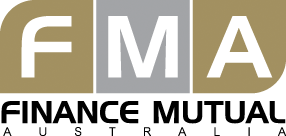June 30 signals the end of another financial year. There’s still a little time to get this year’s finances in order or take the opportunity to make some resolutions about how you manage your money from July 1.
Here are Haven’s top tips for a more fiscally fabulous financial year.
Manage your mortgage
It’s easy to put your home or investment loan on the mental back burner, especially with interest rates so low. But complacency could be costing you thousands over the life of your loan. It costs nothing to talk to your broker to see what other lenders are offering or if you can slice the interest rate with your current lender.
Sock away extra savings
Make a point of hoarding any extra cash throughout the year. Turn tax returns, pay increases and work bonuses into savings, not spending. Inject these and other windfalls into your mortgage to reduce the cost and life of your loan. If you have a redraw facility you can always pull the cash back out if a need arises.
Double down on clearing debt
Pay down your most expensive debts first, then take care of the rest. If only making the minimum repayments on credit and store cards, you will be carrying debt for a lot longer than needed and making it harder to get ahead. Review your debts and make a point of paying off those attracting the highest interest rates first. You should also consider transferring high-interest credit card debt to a low interest option. Keep an eye out for zero-interest transfer offers and make the most of the opportunity to clear your balance sooner.
Get savvy with your super
Your annual super statement will land in the new financial year. Take the time to read it and see how your nest egg faired. Employers must contribute a minimum of 9.5 per cent of your salary to your super, and some offer more. You can also salary sacrifice contributions to top up your investment. How much depends on your stage of life and personal finances.
Talk to your financial adviser to check how much extra you can contribute without being penalised and whether making extra contributions is the best option for your financial circumstances. From July 1 concessional (before tax) contributions will be capped at $25,000 per year for all ages.
You should also check your investment mix and adjust it if not happy with its performance. Your super fund should offer a choice of investments based on risk. The higher the yield opportunity, the higher the risk. How you spread your super across various investments, such as shares and cash, is up to you.
If receiving more than one super statement, consider bundling your accounts into one. Super builds on compound interest, so you may be short-changing yourself if your accounts are dispersed.
Cash in on deductions
You still have time to make any tax deductable purchases before June 30. Check with the ATO what you can claim for your specific job if you are a PAYE employee.
Small business owners have until June 30 this year to cash in on the $20,000 instant asset threshold. This allows you to immediately deduct the business use portion of a depreciating asset that costs less than $20,000.
Now is also the time to make tax-deductible donations to a registered charity of your choice.
If you are cashed up, you may be able to pre-pay some tax deductable expenses, such as accountant fees, interest costs on investments and some work-related expenses, for the next financial year. Check with your financial advisor to ensure you are eligible for pre-payments and they suit your situation.


